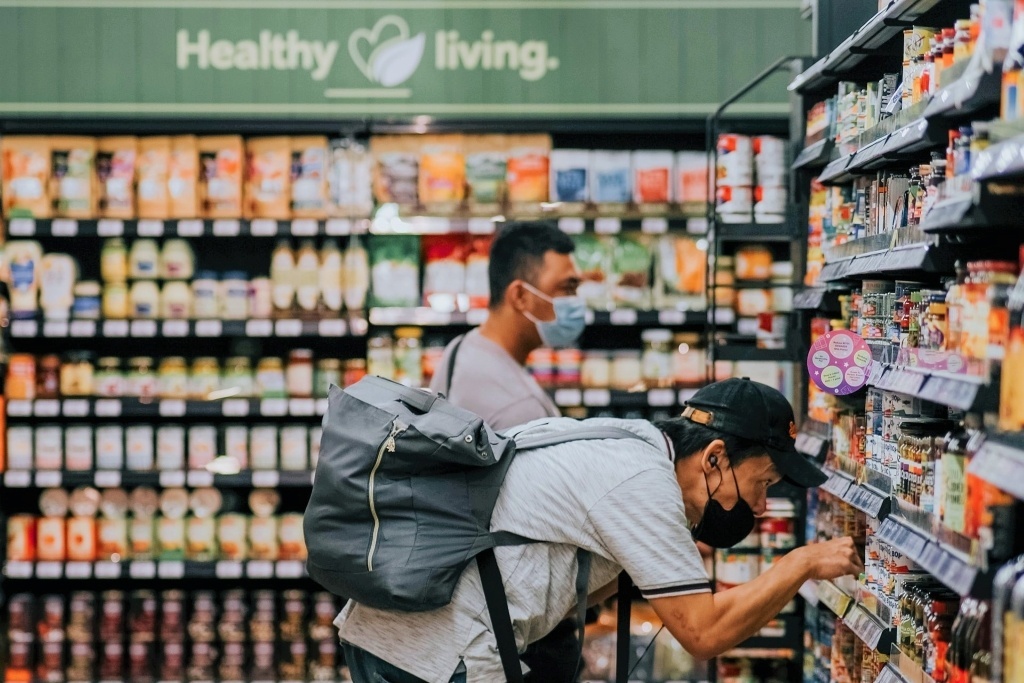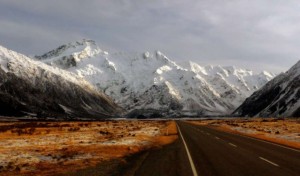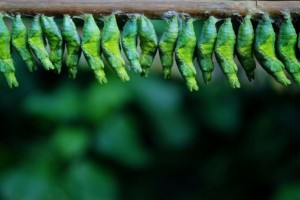A ‘year of hell’, pent-up wanderlust, and the supermarket of beautiful places

If sustainability is ever going to be more than fantasy, tourists and the tourism industry need to treat international travel as a privilege and value domestic destinations much more highly. This is according to veteran hospitality, marketing, and crisis management consultant Bert van Walbeek. However, as evidenced by this “Good Tourism” Insight, he’s not counting on it.
“Let us go on holiday and live our lives” is part of the headline of a recent BBC story about Portugal’s removal from the UK’s ‘green list’. The UK’s ‘traffic light system’ includes a green, amber, and red list of countries. Each colour means different rules around testing and quarantining upon return to the UK.
People being interviewed in the story stated that the prospect of an overseas holiday was a ray of hope after a “year of hell” and complained that the government had refused to “let us holiday and live our life”, even when many people were fully vaccinated.
Having memories going back to the 1950s, I recall going on holiday to a hotel in a forest in the centre of Holland. It was only a 90-minute drive from home. But it took three hours for our family, including a stop for coffee and a rest. I also remember my parents going to Switzerland in the winter. My mother looked forward to it not so much for the skiing, but for the tanned face she would get; a status symbol that would help her stand out from the white-faced winter crowd in my home village.
In the ’60s, my father drove us about 1,000 km to Brissago, on the shore of Lake Maggiore in Switzerland’s canton of Ticino. It took three days and two overnight stops — in Baden-Baden and around Lake Lucerne — as well as the adventure of crossing the San Bernardino Pass, to get there. Factoring in the return journey, we could stay in Brissago for a maximum of eight days so that my father could return to work on time.
Most of my school friends were not as fortunate as me to have parents who could afford these kind of luxuries. There were no laws at that time mandating a minimum number of paid holidays per year.
The supermarket of beautiful places
During the 55 years of my hospitality and tourism career a big change in consumer behaviour and attitudes to travel has taken place in the West. The widely-held perception of travel has moved from break, to reward, to entitlement and, these days, to necessity. Vacation has become a collective obsession. We’re restless. There is a widespread urge to cross borders at least once a year. There is grumpiness when one can’t. To voluntarily not go on an annual holiday is rare. To be forbidden to travel is perceived as oppressive.
The question of the significance of travel is very old, with many different perceptions and opinions. On the one hand one can say “you have to go out to discover the world, to meet yourself and others”. On the other hand one could say “the whole world has already been discovered, you will always be just one of many who has been to a place”.
Also see Meghan L Muldoon’s “GT” Insight
“Taming the beautiful monster: What ‘critical tourism studies’ means to me”
Nobody likes mass tourism, so everyone is looking for the untouched spots. Modern tourism includes tourists who don’t call themselves tourists at all. They’re self-styled ‘travellers’. They look for places where others don’t go. Collectively they spread like wildfire around the world, each to find that one unique spot they can claim as their discovery. In reality their ‘secret’ spots receive a steady stream of visitors just like them. Indeed lots of livelihoods and entire economies are completely dependent on them.
The strange thing is that the unique places they look for are never in their own homes, which they can truly make their own, nor in their own countries. Domestic life for many people in Western cultures stands for isolation, materialism, commerce. Life ‘as it should be’ is somewhere else, like in that Thai village where we believe life is still ‘authentic’.
The world has become a supermarket of beautiful places.
It is now closed.
While many people celebrate the closure for the sake of public health and safety, many others complain that their liberty has been unjustly curtailed. Neither celebration nor complaint is appropriate in the context of a pandemic. True, without international travel, the pandemic would never have gotten out of hand. True, freedom of movement is increasingly perceived as a human right.
Pent-up wanderlust will influence tourism’s recovery
The deep impulse described by the German-derived word Wanderlust is real, especially among the young for whom a year or two (or three or four?) is a very long time. The burning desire for novelty, risk-taking, exploration, and adventure — wanderlust — is being stoked by a rising anxiety about being kept safe, forcibly, for one’s own good.
Now that the pandemic has brought international tourism almost to a standstill, I predict that pent-up wanderlust will affect travel & tourism’s recovery as restrictions ease. We have already seen the effects of post-lockdown demand in domestic tourism settings.
Many tourism researchers and commentators claim that post-COVID-19 tourism will be different. They assume that travel behaviour will change. They devotedly (often blindly) express the hope that tourism will become more sustainable, or even ‘regenerative’.
But, will that really be the case?
Also see Carol Chaplin’s “GT” Insight
“Overtourism to no tourism and back: What is Lake Tahoe’s ‘new normal’?”
There will always be those who want to be somewhere else, doing something else. The average tourist will (still) not rest until he/she has driven Route 66, climbed Kilimanjaro, found inner peace at a Balinese retreat, skied the Canadian Rockies, or whatever else is on their ‘bucket list’.
Questions about what the short- and long-term consequences of the COVID-19 crisis on tourist behaviour will be are not yet answerable. What will it all mean for the development and governance of sustainable tourism? Will overtourism still be a problem when restrictions ease and borders reopen? Will the old normal simply return as evidenced by Venetians once again protesting the arrival of cruise ships?
Will domestic tourism be stronger in the aftermath of the pandemic? Certainly COVID-19 represents an opportunity to reposition local and domestic as novel and exciting, to divert pent-up outbound demand to benefit domestic urban and rural destinations, and to promote slow travel and staycations as new forms of tourism.
Is international tourism a reward, an entitlement, or a necessity?
The world has had a vacation from our vacations. The water in the Venetian canals became clear for a while, the snowy peaks of the Himalayas are visible once again from Punjab, and it turns out that the centre of Amsterdam is quite beautiful without tourists.
This could be a time of reflection. We could choose to fly abroad only once a year from now on, or simply choose to stay and enjoy our home environments more often. But I don’t think that will happen because we have some catching up to do. We have to show our peers how sophisticated and international we are as travellers.
Also see Thomas Bauer’s “GT” Insight
“By invitation only: Sustainable tourism revisited”
Unfortunately, travelling domestically doesn’t quite have the same appeal as international travel. And most destination marketing and management organisations have wasted a wonderful opportunity to develop a domestic travel culture. After all, wholesalers and airlines and peer pressure will continue to convince us that international tourism is not only a reward, but also an entitlement and a necessity; that it is imperative to go on a far-flung holiday and live our lives (unsustainably) to the full.
International travel is a necessity, they will say, not only for your mental health after lengthy lockdowns and restrictions, but for all concerned; for the jobs and livelihoods lost in poorer places that must be regained; for the financial shortfalls that must be recovered; for the debts incurred that must be repaid.
The old normal may well return to supplant the ‘new normal’. But what of the ‘new normal’? Will it be remembered with fondness, as a nightmare best forgotten, or as an opportunity lost?
What do you think? Share a short anecdote or comment below. Or write a deeper “GT” Insight. The “Good Tourism” Blog welcomes diversity of opinion and perspective about travel & tourism because travel & tourism is everyone’s business.
Featured image (top of post): A supermarket in hell? By Melanie Lim (CC0) via Unsplash.
About the author

Bert “Bow-Thai” van Walbeek has been a hotelier since the 1970s — with Hilton, InterContinental, and Sheraton — a tourism marketer since the ’80s, and “the Master of Disaster” crisis management and communications specialist since the late ’90s. In 1993, Dr van Walbeek founded The Winning Edge consultancy through which he helped travel & tourism organisations with marketing and crisis management. Since the turn of the millennium, he has delivered motivational lectures at universities in China, Germany, Macau, Malaysia, the Netherlands, Taiwan, Thailand, and the UK. Bert is the author of Dr. MICE, a collection of meetings and events industry case studies, and is the co-author of Bounce Back, a crisis management guide.





